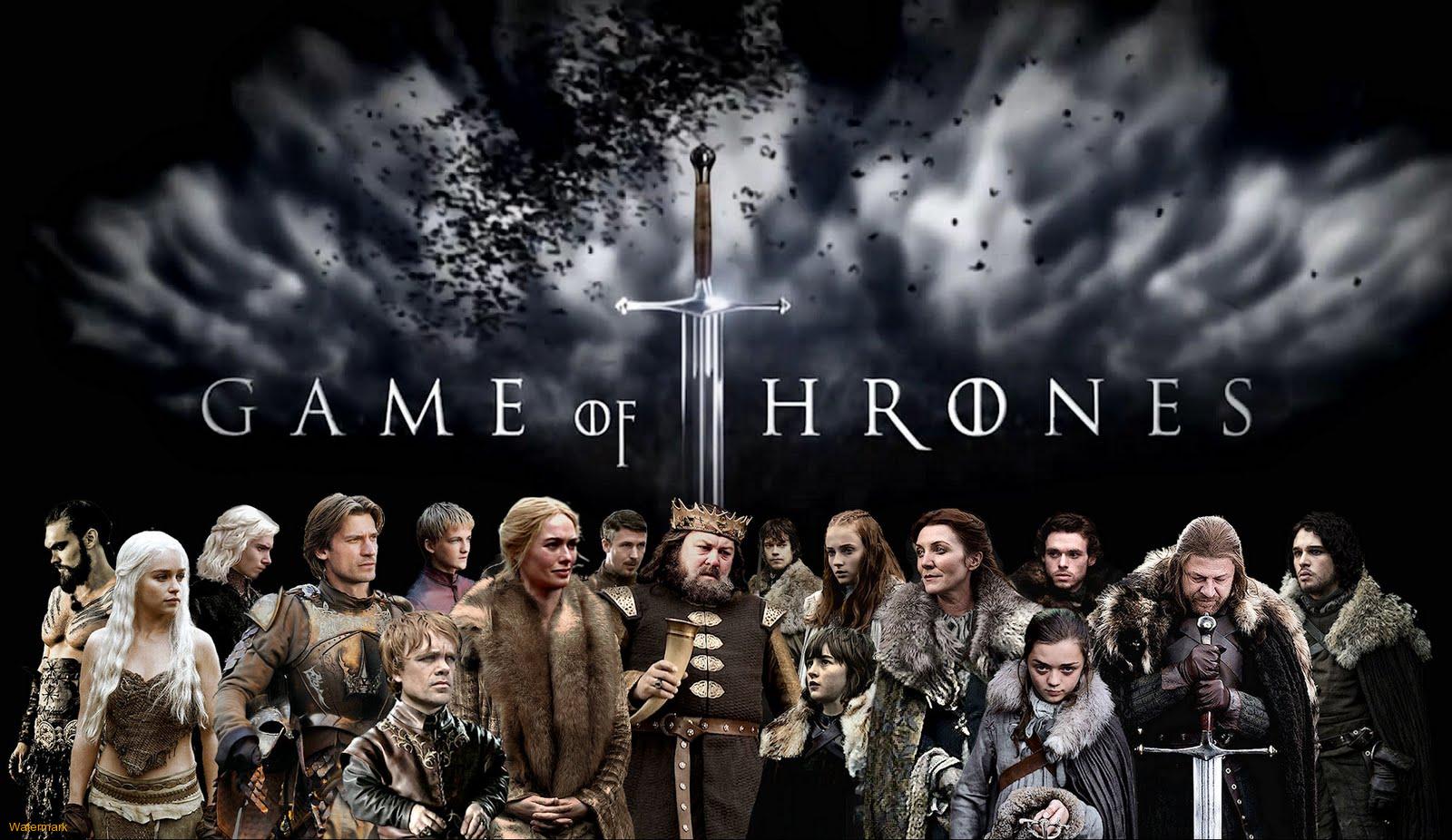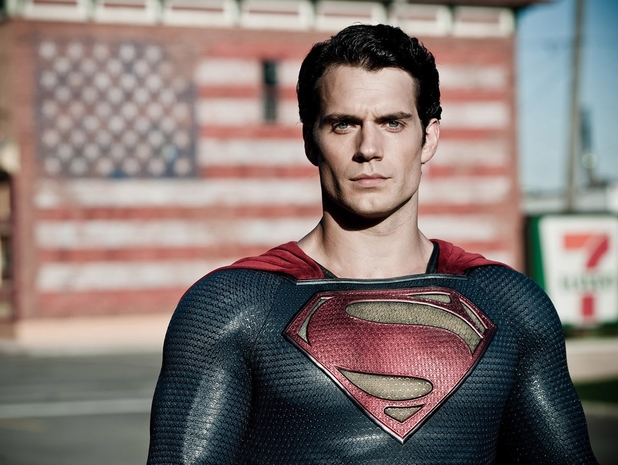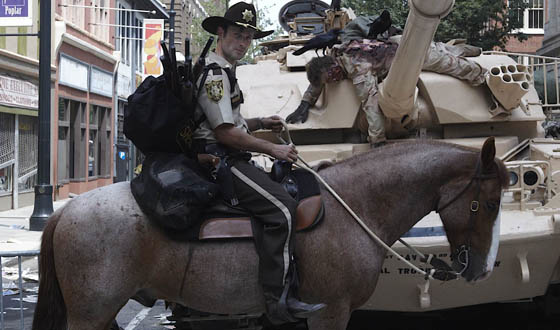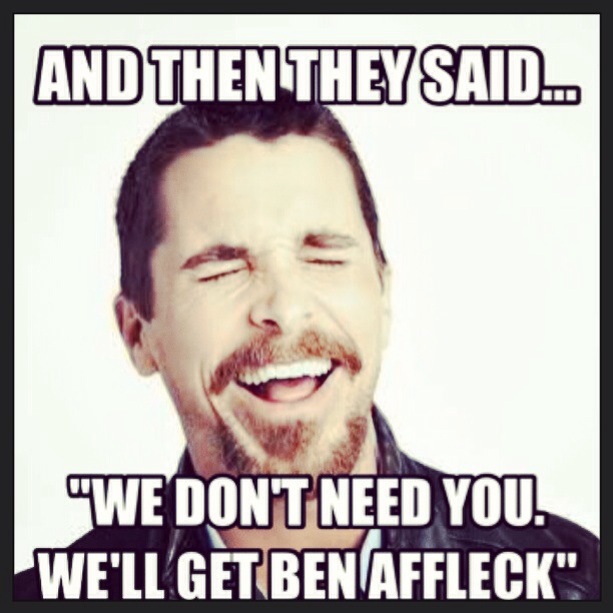Reflections on Actors: British Actors in Contemporary US Film and Television
Simone Knox / University of Reading

Even an idle glance at the credits of contemporary US film and television drama reveals a considerable presence of British actors: on television, Dominic West and Idris Elba in The Wire (2002-2008), David Harewood and Damian Lewis in Homeland (2011-present), Hugh Laurie in House M.D. (2004-2012), Jamie Bamber in Battlestar Galactica (2004-2009), Andrew Lincoln in The Walking Dead (2010-present), Jennifer Ehle in A Gifted Man (2011-2012), and Kit Harington et al. in Game of Thrones (2011-present); and on the big screen, Andrew Garfield in The Amazing Spider-Man (2012), Henry Cavill in Man of Steel (2013), and Christian Bale in Batman Begins (2005), The Dark Knight (2008) and The Dark Knight Rises (2012). The list is long, intriguing and deserves critical attention.
There are two caveats worth making: One, such transatlantic appearances by British actors are, of course, nothing new. The US creative industry has long made use of British (and continental European) acting and production talent, and this has deservedly received scholarly attention (see, for example, Babington1 and Phillips and Vincendeau2). And two, this long-standing presence of foreign talent in Hollywood, to some extent at least, problematizes the very notion of “US film” and “US television.” As Alastair Phillips and Ginette Vincendeau note, given Hollywood’s increasing dependence on subcontracted multinational companies and globalized production, “it has become increasingly difficult to define what a ‘Hollywood film’ actually is.”3 With a significant move towards a global television market, rise of co-productions and format trade, such complexity of terminology also applies to what we commonly understand as “US television.” And of course, the Britishness of “British actors” is far from straightforward, fixed and homogenous, and indeed, through their move West-wards, subject to becoming more fluid and hyphenated.
While the recent casting of British actors for US film and television is part of a long-standing history, there does seem to be a distinguishable wave here; for here we have a significant enough number of British actors cast for often high-profile roles in major US productions, whereby they mostly play US characters – and often (albeit darkly) heroic US characters at that, including the cop, the soldier, the sheriff, the doctor and the superhero. There is much to be said about this, and I shall here focus on a few points driven by an institutional and industrial perspective that is interested in the working environment of British professional actors.
As Trevor Rawlins has argued, with the decline of repertory theatre, television has become the main employer for actors in Britain.4 Here, with the rise of light entertainment and (structured) reality formats, the number of original drama productions has decreased in recent decades. Not only are there fewer dramatic roles, but there is also more competition for them since the British actor union Equity was forced to discontinue as a closed shop in the 1990s. Simultaneously, the history, glamour and status of Hollywood have always held an attraction for British actors, tempting them with assumed economic and profile-raising benefits. And with US television drama’s shift of recent years towards discourses of quality, the prospect of a dramatic role in an acclaimed production by the likes of HBO has certainly only furthered this attraction, and done much to resolve traditional hesitations about working for the medium of television.
As British actors have been auditioning for US characters, this also side-steps concerns about getting cast in established British stereotypes. Phillips and Vincendeau as well as Andrew Spicer5 have discussed how, in its portrayals of British identities, Hollywood has traditionally relied on certain stereotypes, including the suave gentleman, the tribal elder (certainly drawn upon for the Ian McKellen/Patrick Stewart combo in the X-Men franchise), the bumbling fool, and the well-spoken villain, with British actors often playing British sidekicks to the US heroic lead. Phillips and Vincendeau suggest that “[t]he force of such images has meant that actors who wished to escape ‘their’ national typecasting […] found it extremely hard to obtain significant roles.”6 Now, playing US characters, actors like Andrew Lincoln or Henry Cavill get to be not only the lead, but they get to be the hero, with fewer limitations in terms of what their character can necessarily be and do.

Furthermore, these British actors tend to be relatively unknown in the USA at the point of casting. That the quality status of cable shows on HBO and Showtime et cetera is partly constructed around the notion of distinction, of being new, different and fresh is significant here, as the casting of unknown British actors works well in this regard. The latter also helps in terms of realism and verisimilitude, as these actors bring fewer connotations of previous work with them, thus eliding the difference between actor and character. As US viewers watch, for example, a telefantasy show like The Walking Dead, they are unlikely to be distracted by the thought: ‘Oh, it’s Egg riding a horse in the post-apocalypse!’

But of course US screen products aim at global markets, and the casting of This Life’s Andrew Lincoln offers an additional point of interest and entry for British viewers. And, as the recent backlash against the casting of Ben Affleck as Batman has me think, the unknownness of British actors may also be helpful in producers’ efforts to manage promotional, media and audience discourses.

Furthermore, British actors are attractive propositions for US film and television because, whilst they are less well-known and “fresh fare”–and crucially, less expensive–they are also experienced actors, with usually several years worth of acting experience and British actor training behind them. These British actors tend to be regarded as experienced enough to carry a production–this has been helped by Hugh Laurie’s considerable, precedent-setting success, what I want to call “the House effect”–and to cope with the demands of the filming schedule. British acting and British actor training have been held in high regard in the USA for a long time, and British drama schools are often cited as providing actors with a usefully rounded sense of technique and discipline. (Interestingly enough, it is the British training, especially voice work, that helps British actors mask their Britishness in the USA.) Based on the dominant understandings of different acting and actor training traditions across the Atlantic, the traditional binary view that British actors are more suited for the stage and US actors for screen-based work–insightfully discussed by Rawlins–is certainly being challenged by the recent presence and success of British actors’ screen performances in the USA. Hugh Laurie is an interesting case here as he problematizes certain assumptions: He has been very successful as Gregory House (which saw him become the highest-paid actor in US television drama) and praised for his US accent, yet this is not the result of British actor training.
[youtube]http://www.youtube.com/watch?v=XfBTe_N-m6U[/youtube]
To conclude, Spicer argued in 2006 that British actors’ “extensive contribution to contemporary Hollywood deserves to be more widely recognised than it is.”7 This has proven to be an ongoing process, to which the recent Exploring British Film and Television Stardom conference has provided a welcome contribution; but more work is needed, to explore the full significance of this historically contingent alien presence in US film and television that offers fascinating insights into the lived experience of British and US screen culture.
Image Credits:
1. Game of Thrones Cast
2. Henry Cavill
3. Rick Grimes
4. Christian Bale
Please feel free to comment.
- Babington, Bruce (ed). British Stars and Stardom: From Alma Taylor to Sean Connery. Manchester: Manchester University Press, 2001. [↩]
- Philips, Alastair and Ginette Vincendeau. “Film Trade, Global Culture and Transnational Cinema: An Introduction.” Alastair Phillips and Ginette Vincendeau (eds). Journeys of Desire: European Actors in Hollywood, A Critical Companion. London: BFI, 2006. 3-18. [↩]
- Philips and Vincendeau 4. [↩]
- Rawlins, Trevor. Studying Acting: An Investigation Into Contemporary Approaches to Professional Actor Training in the UK. Unpublished PhD thesis, University of Reading, 2012. [↩]
- Spicer, Andrew. ‘Acting Nasty?: British Male Actors in Contemporary Hollywood. Alastair Phillips and Ginette Vincendeau (eds). Journeys of Desire: European Actors in Hollywood, A Critical Companion. London: BFI, 2006. 141-148. [↩]
- Philips and Vincendeau 13-14. [↩]
- Spicer 146. [↩]
Pingback: Reflections on Actors: Minority Identity Actors in the Creative Industries of Contemporary Britain Simone Knox / University of Reading | Flow
I’ve often noticed the ubiquity of British actors masquerading as Americans. As an avid watcher of both British and American television, it’s become something of a game to me: spot the British actor pretending to be a New York cop or Seattle doctor. In some cases, the false American accent is necessary to the material. Knox’s Superman example is obvious: alien or no, Clark Kent grew up in Kansas, and an essential part of his legacy is his homegrown American persona. But I’ve often wondered why the less regionally specific characters must conform to the American sound. Why does Dr. House have to be American? Would he be any less brilliant or curmudgeonly if he hailed from the UK? Indeed, I can’t help but think that British actors being allowed to use their native accents would be an advantage in some cases. The appeal of British accents, if stereotypical, is still largely true. To quote Love Actually’s Colin Frissell, “American girls would seriously dig me with my cute British accent.” Countless behind the scenes articles and interviews have made a point of swooning over the native accents of British actors who day job as Americans. So why doesn’t television exploit this more?
In ruminating on this question, I find myself thinking of the global dominance of American media. Hollywood is accustomed to being the leading figure in international television and cinema. But as Knox observes, British actors are being relied upon more and more, for a variety of economic and creative reasons. So perhaps the insistence upon an often unnecessary American accent is Hollywood’s way of reasserting its supremacy. If we can’t all be American, at least we can all sound American. There may be sporadic outrage about foreigners being cast as celebrated American heroes, but so long as the majority of characters in both television and film remain American within their respective diegetic worlds, Hollywood can maintain its US-centric stronghold over entertainment.
But this viewpoint isn’t indiscriminate. Accents are still strategically employed. While the vast majority of British actors working in the US utilize American accents regularly, Hollywood still frequently falls back on the stereotypes Knox identifies, requiring the Brits to exploit their native tongues to play such tropes as the sophisticated villains. In fact, this enduring trend was recently focused upon in the tongue-in-cheek Jaguar ad for the 2014 Superbowl, in which Mark Strong, Tom Hiddleston, and Sir Ben Kingsley discuss why Brits so often play the bad guys. Interestingly, the way in which accents are selectively assigned speaks to the cultural expectation of certain character types. Period pieces and fantasy shows routinely depict British accents as the coverall accent used in history and other worlds. To suit this practice, American actors are asked to do what British actors have perfected: adopt a fake accent to conform to the expectation. Some are more successful than others (Brad Pitt’s terrible British accent as an ancient Greek in Troy is one of the less convincing endeavors). Accents thus become a ploy, part of the mise-en-scene of television and film. British actors must become Americanized to fit into the modern expectations, but American actors must become temporarily British in order to be accepted in a historical setting. America may have a monopoly on entertainment set in the modern world, but Britain still has a firm hold on the past.
It is certainly true that the influx of British actors is astounding and the reasonings, their talent and relative obscurity, are really interesting to consider. It’s interesting other “British” TV trends are making their way onto American screens. Recent years have seen an explosion of period pieces, from Mad Men to Boardwalk Empire to Masters of Sex and even attempts to bring period pieces to network primetime with shows like Reign. Shows are trending toward shorter seasons and miniseries are returning to network with Rosemary’s Baby this summer. British imports Downton Abbey and Sherlock have garnered not only fervent American fans, but Emmy nominations. There’s a lot of British entertainment on American television, not only in actors but also in format and direct, successful imports.
It’s interesting also to look at Game of Thrones, which, as mentioned, has a primarily British cast. Not only is the cast British, however, but the content is very British as well. The entire series was conceived as a play on British history, it features the costume and production design of a medieval period piece on and HBO budget with fantasy imagination. George R.R. Martin has garnered his fair share of comparison to J.R.R. Tolkien.
There seems to be a fascination with all things British in modern America, especially amongst nerd culture. I wonder if this comes from a sense of superiority. American media has the reputation of being low culture, entertainment for the masses. While the perception of British media is one of class and elitism. A British accent instantly makes an American viewer feel classy, intelligent and superior. Perhaps the injection of British actors into American blockbusters, such as the Dark Knight Trilogy and Man of Steel is an effort to inject some semblance of class into a genre which many consider to be low brow. It’s almost as if the studios are saying “Look! We have a British actor. Take us seriously.”
It’s hard to say whether this association with British culture is an active expression of intellectual superiority or a coincidental conflation of changing trends and British media history, but it is certainly an interesting trend to examine, not just in terms of actors but in terms of other trends as well.
Hi Elisabeth and John,
Apologies, I only just now noticed your comments on this blog post, otherwise i would have responded sooner to your very thoughtful reflections, which raise all kinds of interesting further issues. I’m just going to pick out on a couple of points that really struck me for now:
Elisabeth, your point about the global dominance of US media is very important. I also think that, whilst your’e absolutely right that the British accent is generally positively received in the USA, this is especially of course the case in Anglophile circles. Perhaps producers think that British accents might not be as appealing everywhere in the USA, especially for a long-running show (where it would arguably lose its sense of novelty or ‘exotic’ difference after a while). Here, Hoskins and Mirus’ notion of cultural discount strikes me as relevant – difference can be appealing for some and have a diminished appeal for others, after all.
Also, if a British actor spoke with a British accent/played a British character, this wouldn’t be just a small tweak to whichever US programme he/she was cast in; it would reposition the character quite significantly, which would have a knock-on effect on the programme’s textual identity overall (especially if the actor plays one of the major parts). So, if we apply the commutation test and imagine Dr. House as British, then he perhaps would indeed be no less brilliant or curmudgeonly, but he would be a different character, which would raise a different set of issues and meanings for the show, which would be a different show – and producers might simply not be interested in this.
John, you are absolutely right to point out that there’s a a range of British influences and presences on US television. this is, of course, nothing new, and history has shown us that the US market becomes more open at certain times to such influences and presences, and then becomes less open to them, depending on how it itself is developing. I would recommend Jeffrey S. Miller’s book Something Completely Different as a great read, if you haven’t already come across it; as well as Elke Weissmann’s work on the development of the American mini serial and its import to Britain.
You are also right to bring in the long-standing US views of British cultural superiority. Here, Jeffrey Miller and myself in my published work on Masterpiece Theatre have discussed some of the ways in which Anglophiliac elitism has always served social stratification and distinction within the United States; and i’m sure there’s elements of this in the industry developments you are referencing, in ways that deserve undoubtedly more in-depth consideration.
One point that perhaps connects both of your posts is the presence of British judges on talent/game shows, such as Simon Cowell, Anne Robinson, et al. Here, their performance as the villain is interestingly intertwined with their British status and the connotations of knowledge, cultural heritage and superiority that are attached to this. Fascinating stuff.